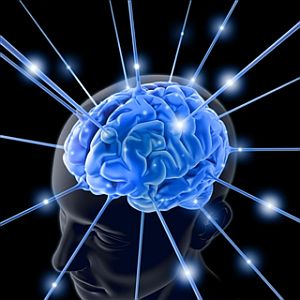Puerto Vallarta, Mexico - What you're about to read isn't conjecture, wishful thinking or words meant to inspire hope. This is a compilation of neuropsychological research from teams of Doctors, scientists and researchers that has been scrutinized in depth.
I'll even sum up the article for you in the beginning; you can do something now, that will defend your children against Alzheimer's Disease. Why should you be thinking about your children and Alzheimer's now? Because taking action today can protect your child more than it will in just one year and much more than it will five years from now.
Speaking two languages (bilingualism) is for the brain, what Yoga, weight training and leading an active lifestyle is for the body. Everyone has heard of gray matter, the majority of the nerve cell mass in our skulls. This gray matter, believe it or not, bulks up just like a well exercised muscle in the brains of bilingual people.
Being bilingual physically improves the brain itself, and that change can have a profound impact. This cranial calisthenics has a direct and beneficial impact on language skills, memory, executive skills and intellect. And, just like other forms of exercise, there are long term health benefits.
According to Dr. Ellen Bialystok, What age in life you acquire bilingual skills makes a big difference as to how much it will affect your brain. In preschool aged children, bilinguals develop superior task related skills demonstrated by greater focus and resistance to distractions.
Bilingual adults continue to hold that advantage later in life, enjoying superior communication, memory and executive skills. By continuing to not only speak, but also to think in more than one language, that bulking up of the gray matter continues to benefit bilinguals throughout their adult life, and that's where bilingualism really makes the greatest impact.
Becoming bilingual at any age has undeniable health benefits, but the research shows the earlier you become bilingual, the more benefit you will be rewarded with.
First, bilingual people reduce and delay the effects of normal age related memory loss and cognitive decline, offering a higher quality of life in later years. These benefits are well researched and documented and the long and the short of it is this; being bilingual will keep you mentally sharper, longer. This is only referring to normal age related mental decline, not Alzheimer's. If we're lucky enough to live a long life, we will almost certainly one day be faced with some amount of cognitive decline, if we're bilingual however, there will be less and it will come about later.
Second, and I think most important, is what impact speaking more than one language has on Alzheimer's Disease. AD is a brutal, brutal, brutal disease. There's a feeling in my gut just from typing the words, associated with how cruelly the meandering path of this disease cuts through lives. Being multilingual will improve your ability to deal with the effects of Alzheimer's compared to monolingual people. It will still be awful, but less awful. Much more importantly, bilingualism from an early age will put off the effects of AD for 4 to 5 years. To put it another way, much more importantly, bilingualism from an early age will put off the effects of Alzheimer's disease for 4 to 5 years!
Clara Moskowitz of CBS News reported on the findings of Dr. Bialystok's team of researchers from York University in Toronto, which found that when the brain is called on to draw from two or more languages, the activity in the brain jumps from hemisphere to hemisphere "exercising" a portion of the gray matter in a manner not shared by monolinguals. Bilingualism will not prevent Alzheimer's disease, at the moment nothing can do that. What the research does indicate is that people who are bilingual have more developed gray matter, resulting in more resiliency to continue functioning at a higher level than monolinguals during the progression of Alzheimer's Disease.
The information above was assembled from research mainly on people who became bilingual before they turned six. About 4% of the US population today is 5 years old or younger, that's about 21 million kids. According to recent research, 1 in 8 (2,625,000) of those children will develop Alzheimer's in their lives. In today's dollars, the cost of treating these children who contract Alzheimer's later in life will be $56,800 per year. So this group of children, who are five years old and younger today, could cost just under $150 billion dollars per year to care for about seven decades from now. Or, for a fraction of the cost of one year's treatment of those same 2,625,000 kids, bilingual education could become a required component of the nation's curriculum, saving trillions of dollars in health care costs in the long term.
Much more important than the financial aspects, are the quality of life aspects. Bilinguals will be diagnosed with AD on average 4.3 years later than monolinguals, with symptoms of AD coming five years later as a direct result of being bilingual from age five. There's 5.1 years between the average age at the onset of AD and the average age at the end of life. If your child learns more than one language from an early age, and he or she was destined to get AD later in life, your decision to have your child become bilingual could be singularly responsible for your child, and his or her family to never suffer the effects of AD at all.
Todd Melcher and his wife Patty Marchak own the Spanish Experience Center in Puerto Vallarta Mexico. For more information regarding bilingualism and Alzheimer's disease or to learn about their Spanish Immersion Language School, please visit SpanishExperienceCenter.com.


